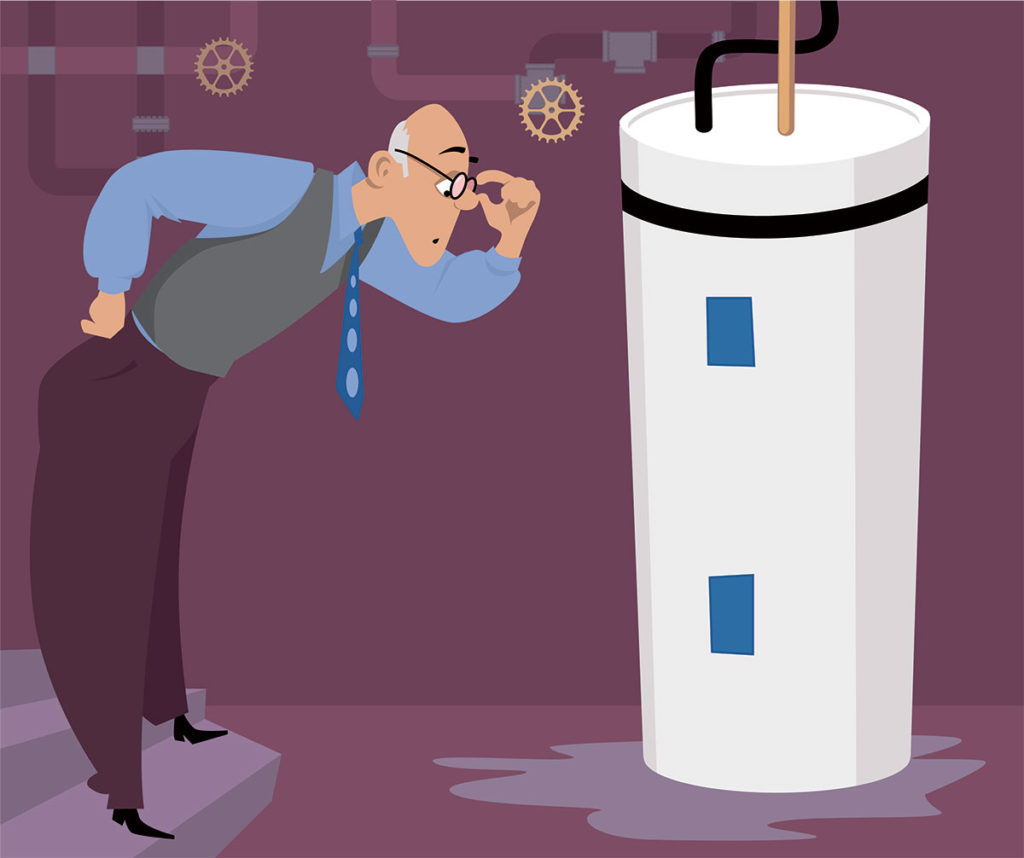Hot/warm, running water is vital to everyday living in most households. From washing laundry and cleaning dishes to showers, baths, hand–washing, and cooking, there are numerous daily demands placed on a water heater.
Whether it’s due to usage strain or the tank’s age, water heaters have an average lifespan of 10 years. Eventually, you’ll begin to see signs that your water heater needs to be replaced. While you can help extend the life of your water heater with annual maintenance, chances are you’ll need to have it replaced after eight years. Therefore, we’ve compiled a list of six signs that can uncover a problem with your water heater before you’re faced with a nasty situation.
1. Shortage of hot waterIf you are unexpectedly without or getting little hot water, the pilot light on your water heater may be out.
2. Inconsistent water temperature
When your water is cold one second, hot the next, and then cold again, it could be a sign that the mineral deposits have build-up around the water heater’s heating element or that the heating element needs to be repaired or replaced.
3. Low water pressure
Mineral deposits not only reduce the efficiency of your water heater but can also build up enough to block the pipes, therefore reducing the water pressure coming out of your water heater.
4. Cloudy or Rusty Water
If you notice cloudy or rusty water coming out of your faucet when using hot water, it’s a clue that sediment buildup in the bottom of your tank, and it may be rusting from the inside out. This is a serious problem that can result in a leak, causing damage to your home. You will need to drain the tank and refill or call Heating Specialties to help.
5. Abnormal Sounds
If you hear banging or rumbling noises coming from your water tank, you probably have residue or sediment build-up. This build-up comes from mineral residue that collects in the tank. It makes your system less efficient because it takes more energy to heat your water. The mineral residue will also lessen the volume of water that the tank is able to hold. And, it can cause damage to your system, leading to cracks and leaks in the tank.
6. Leaking
A quick inspection around your water heater to check for water around your water heater can prevent a potential catastrophe. Leaks can be caused by mineral or sediment buildup at the bottom of your water heater which can cause corrosion.
Heating Specialties can solve many of your water heater issues with an annual water heater flush and fill. It removes sediment from the bottom of the tank and extends the life of your water heater. If you live in the Bridgeton area, give us a call (866) 923-2653 or schedule maintenance online today!

